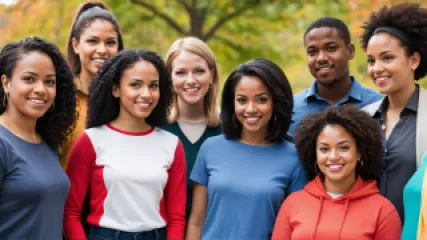Effective Anti-Bias Strategies: A Step-by-Step Guide
Introduction:
Bias is a pervasive issue in society, influencing our thoughts, actions, and interactions with others. It can manifest in subtle ways, shaping our perceptions and judgments without us even realizing it. Recognizing and confronting bias is essential for creating a more inclusive and equitable world. In this comprehensive guide, we will explore effective anti-bias strategies step-by-step, providing you with the tools and knowledge to challenge bias and promote understanding.
Step 1: Understanding Bias
Before we can effectively confront bias, it is crucial to understand what it is and how it operates. Bias refers to the tendency to favor or hold negative attitudes towards certain individuals or groups based on characteristics such as race, gender, age, or socioeconomic status. It can be explicit or implicit, conscious or unconscious.
To gain a deeper understanding of bias, consider the following:
- Educate Yourself: Take the time to learn about different forms of bias, including both overt and subtle manifestations. Familiarize yourself with concepts such as stereotype threat, microaggressions, and privilege. Expand your knowledge by reading books, attending workshops, and engaging in conversations with diverse individuals.
- Reflect on Your Own Biases: Acknowledge that everyone holds biases, including yourself. Reflect on your upbringing, experiences, and socialization that may have influenced your biases. Self-awareness is the first step towards challenging and unlearning bias.
- Examine Systems of Oppression: Explore how bias intersects with systems of oppression, such as racism, sexism, ableism, and homophobia. Understand that bias is not just an individual issue but deeply ingrained in societal structures.
Step 2: Recognizing Bias
The next step in confronting bias is developing the ability to recognize it in ourselves and others. Bias can be subtle and ingrained, making it challenging to identify without intentional effort. Here are some strategies to help you recognize bias:
- Practice Mindfulness: Cultivate mindfulness to observe your thoughts, feelings, and reactions. Pay attention to any biases that may emerge during interactions or when making decisions. Mindfulness allows you to develop a greater awareness of your own biases.
- Listen to Others: Actively listen to the experiences and perspectives of individuals from marginalized groups. Their stories can provide valuable insights into the biases they face on a daily basis.
- Question Stereotypes: Challenge stereotypes by critically examining their validity. Recognize that stereotypes often oversimplify complex identities and perpetuate bias.
Step 3: Creating an Inclusive Environment
Building an inclusive environment is crucial for combating bias and fostering understanding. When everyone feels valued and respected, bias becomes less prevalent. Here are some strategies to create an inclusive environment:
- Promote Diversity: Embrace diversity in all its forms. Encourage the inclusion of individuals from different backgrounds, cultures, and perspectives. Actively seek out diverse voices and experiences.
- Establish Clear Expectations: Set clear expectations for behavior and communication that reflect inclusivity. Foster an environment where everyone feels safe expressing their opinions and concerns.
- Address Microaggressions: Microaggressions are subtle, everyday actions or comments that reinforce bias. Learn to recognize and address microaggressions when they occur, both in yourself and others.
Step 4: Educating Others
Confronting bias is not just an individual endeavor; it requires collective action. Educating others about bias is an essential part of creating a more inclusive society. Here are some strategies for educating others:
- Engage in Dialogue: Initiate conversations about bias with friends, family, colleagues, and community members. Encourage open-mindedness and create a safe space for discussing sensitive topics.
- Share Resources: Share books, articles, documentaries, and other resources that address bias and promote understanding. Use social media platforms to amplify voices from marginalized communities.
- Lead by Example: Be a role model for anti-bias behavior. Demonstrate empathy, respect, and inclusivity in your interactions with others. Your actions can inspire others to do the same.
Step 5: Continuing the Journey
Challenging bias is an ongoing process that requires continuous learning and reflection. It is essential to remain committed to personal growth and to adapt your strategies as you learn and grow. Here are some ways to continue your anti-bias journey:
- Stay Informed: Keep up to date with current events, research, and discussions on bias and discrimination. Continue expanding your knowledge and challenging your assumptions.
- Seek Feedback: Ask for feedback from trusted individuals who can provide honest assessments of your biases and blind spots. Use this feedback constructively to further develop your understanding.
- Support Advocacy Organizations: Contribute to organizations that work towards eliminating bias and promoting social justice. Donate your time, skills, or resources to support their initiatives.
Conclusion:
Confronting bias is a critical step towards creating a more inclusive and equitable society. By following these step-by-step strategies, you can actively challenge bias, promote understanding, and contribute to positive change. Remember, this journey requires ongoing commitment and self-reflection, but the impact of your efforts can be transformative.






